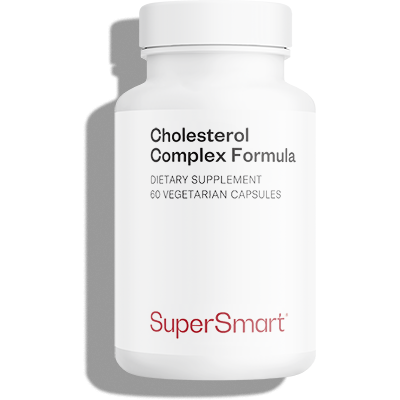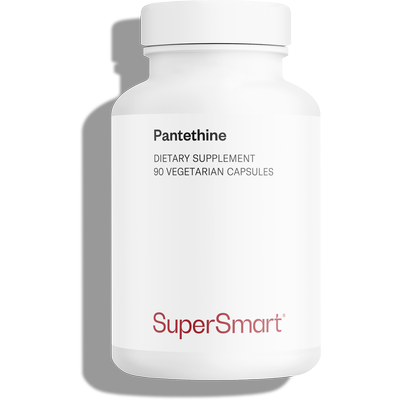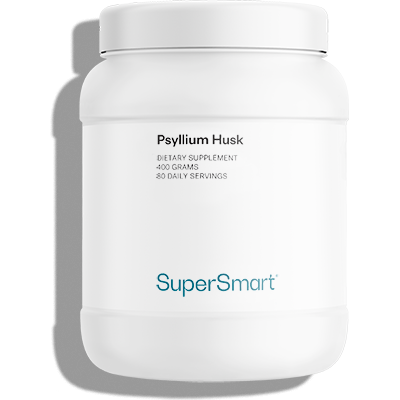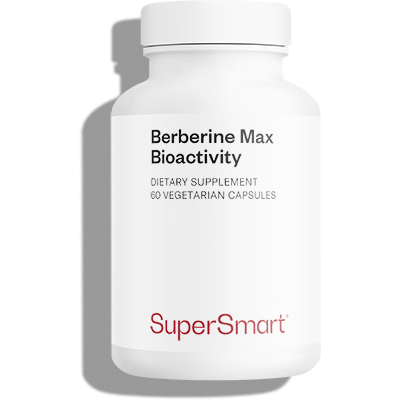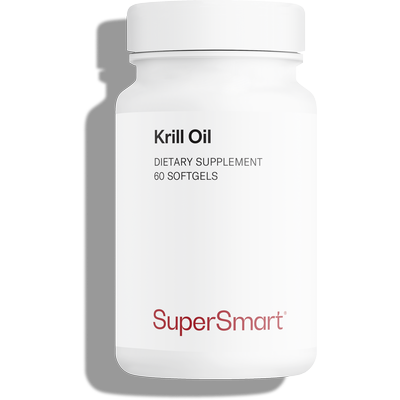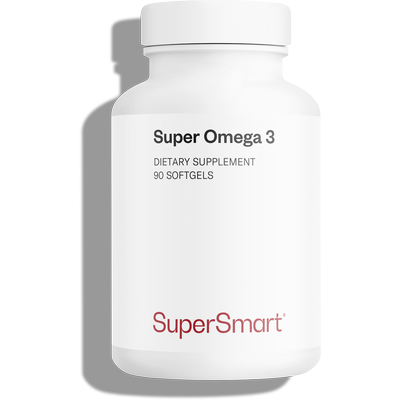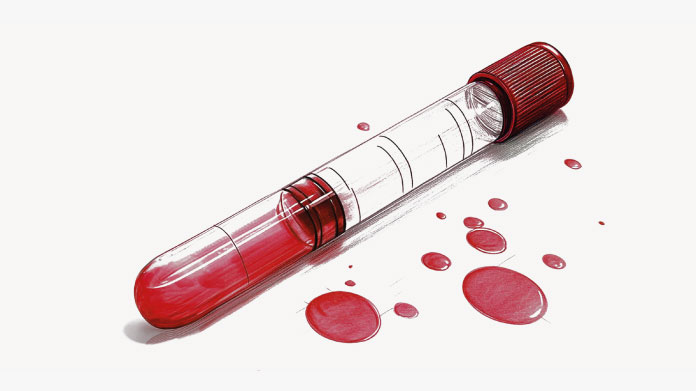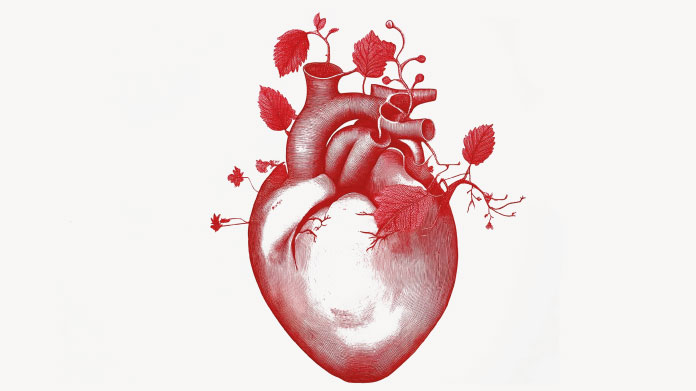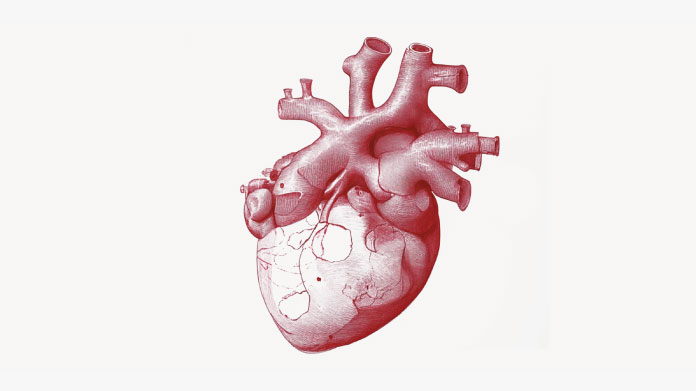How to reduce triglyceride levels?
Do you think you have excess triglycerides, which are an increased cardiovascular risk factor? Find out how to act naturally and effectively to lower your triglyceride levels.

What you need to know about triglycerides
Triglycerides are blood lipids, i.e. fats that circulate naturally in the blood.
They come both from our diet (especially if it is rich in sugars and fats) and from physiological synthesis by the liver.
The liver produces them when it consumes more calories than the body needs.
Their main role is to supply the human body with energy.
But while they are essential to metabolic balance, their presence in excess is problematic.
A high level of triglycerides in the blood (hypertriglyceridaemia) is one of the causes of cardiovascular diseases such as atherosclerosis (hardening of the arteries), strokes and digestive diseases such as acute pancreatitis.
This often silent lipid imbalance may also be associated with other metabolic disorders, such as type 2 diabetes, excess weight or metabolic syndrome.
How can triglycerides be lowered naturally?
The presence of excess triglycerides is generally revealed by a blood test.
To limit the impact on health, it is important to take steps to reduce blood triglycerides.
The first step is to make simple but effective lifestyle adjustments.
In terms of diet (1), it is essential to limit consumption of foods rich in simple sugars and saturated fats.
These promote the production of triglycerides by the liver when they are consumed in excess and the body does not have the time to use them.
So it's best to avoid fizzy drinks, sweets, pastries, white bread and processed foods as much as possible.
It is also advisable to moderate alcohol consumption, which is a risk factor for increased triglycerides and increases both carbohydrate and calorie intake.
At the same time, it's a good idea to adopt a balanced diet, giving pride of place to fibre-rich foods (fruit, vegetables, pulses, wholegrain cereals), which slow down the assimilation of sugars and fats in the intestine and provide antioxidants.
Eating good fats (oily fish, quality vegetable oils) can help regulate lipid metabolism.
Other habits also help to maintain a healthy lipid balance:
- Stop smoking, as it increases the risk of atherosclerosis (2).
- Engage in regular physical activity (at least 30 minutes a day) to increase overall energy expenditure.
- Maintain a stable weight, or even lose weight if overweight (BMI over 25) or obese (BMI over 30).
Useful substances in cases of excess blood triglycerides
Omega-3 to combat triglycerides
Omega-3 fatty acids such as EPA (eicosapentaenoic acid) and DHA (docosahexaenoic acid) help maintain normal triglyceride levels (3).
Widely studied, they work by reducing the liver's production of triglycerides and increasing their clearance, i.e. the rate at which they are eliminated from the blood.
To do this, they promote the use of triglycerides as a source of energy.
Omega-3s are mainly found in oily fish (sardines, mackerel, salmon) and in certain fats (linseed oil, walnut oil, rapeseed oil, etc.).
Supplementation can also be beneficial in achieving optimal omega-3 intakes (for example, with the Super Omega 3 food supplement, based on ultra-purified fish oil).
Among the food sources naturally rich in omega-3, krill oil is also an excellent source of EPA and DHA.
Some food supplements (such as Krill Oil) offer it in capsule form, with high bioavailability and guaranteed free from heavy metals.
Berberine for a healthy lipid profile
Berberine is a plant molecule extracted from certain plants, in particular goldenseal and barberry.
Scientific research shows that berberine plays a role in restoring a healthy overall lipid profile by helping to maintain normal levels of triglycerides (4) and cholesterol.
It is thought to activate AMPK, a key enzyme in energy metabolism.
Various berberine food supplements enable you to benefit from its advantages (such as our Berberine Max Bioactivity supplement, whose berberine is 10 times more bioavailable than standard berberine, and whose effects have been documented by clinical studies).
An interesting role for pantethine, derived from vitamin B5
Biologically speaking, vitamin B5 (pantothenic acid) is involved in lipid metabolism via its role in the synthesis of coenzyme A, which is essential for the breakdown and elimination of fatty acids by the body.
The derived form of vitamin B5 known as pantethine is being studied for its potential effects on triglyceride reduction (5) and cardiovascular health.
To take advantage of the benefits of pantethine, there are food supplements available in capsule form (such as our Panthetine supplement).
The benefits of soluble fibre in relation to triglycerides
Soluble fibre can help reduce the absorption of dietary fats by regulating transit.
Particularly rich in fibre, blond psyllium (Plantago ovata) helps to control blood cholesterol levels.
Research suggests that it also helps reduce levels of other blood lipids (6).
This ingredient is easily found in natural food supplements (such as our Psyllium Husk made from blond psyllium husks).
A new statin-free red yeast rice
Unlike traditional red yeast rice containing monacolins (natural statins that are sometimes undesirable), Ankascin® 568-P is an innovative extract that contains no monacolins and therefore no statins.
According to 4 double-blind clinical studies, its use is followed by a reduction in total cholesterol, as well as triglycerides, glycaemia and blood pressure.
It can be found in food supplements targeting lipid balance (such as our Cholesterol Complex Formula, which also contains policosanols studied for their potential action on triglycerides and cholesterol).
SUPERSMART ADVICE
References
- Luna-Castillo KP, Olivares-Ochoa XC, Hernández-Ruiz RG, Llamas-Covarrubias IM, Rodríguez-Reyes SC, Betancourt-Núñez A, Vizmanos B, Martínez-López E, Muñoz-Valle JF, Márquez-Sandoval F, López-Quintero A. The Effect of Dietary Interventions on Hypertriglyceridemia: From Public Health to Molecular Nutrition Evidence. Nutrients. 2022 Mar 5;14(5):1104. doi: 10.3390/nu14051104. PMID: 35268076; PMCID: PMC8912493.
- Ishida M, Sakai C, Kobayashi Y, Ishida T. Cigarette Smoking and Atherosclerotic Cardiovascular Disease. J Atheroscler Thromb. 2024 Mar 1;31(3):189-200. doi: 10.5551/jat.RV22015. Epub 2024 Jan 14. PMID: 38220184; PMCID: PMC10918046.
- Luna-Castillo KP, Olivares-Ochoa XC, Hernández-Ruiz RG, Llamas-Covarrubias IM, Rodríguez-Reyes SC, Betancourt-Núñez A, Vizmanos B, Martínez-López E, Muñoz-Valle JF, Márquez-Sandoval F, López-Quintero A. The Effect of Dietary Interventions on Hypertriglyceridemia: From Public Health to Molecular Nutrition Evidence. 2022 Mar 5;14(5):1104. doi: 10.3390/nu14051104. PMID: 35268076; PMCID: PMC8912493.
- Singh AB, Liu J. Berberine decreases plasma triglyceride levels and upregulates hepatic TRIB1 in LDLR wild type mice and in LDLR deficient mice. Sci Rep. 2019 Oct 30;9(1):15641. doi: 10.1038/s41598-019-52253-y. PMID: 31666640; PMCID: PMC6821852.
- Osono Y, Hirose N, Nakajima K, Hata Y. The effects of pantethine on fatty liver and fat distribution. J Atheroscler Thromb. 2000;7(1):55-8. doi: 10.5551/jat1994.7.55. PMID: 11425046.
- Chan MY, Heng CK. Sequential effects of a high-fiber diet with psyllium husks on the expression levels of hepatic genes and plasma lipids. Nutrition. 2008 Jan;24(1):57-66. doi: 10.1016/j.nut.2007.08.009. Epub 2007 Nov 5. PMID: 17981437.
Keywords
6 Hours
GOOD BRAND IN FOOD COMPLEMENTS
GOOD BRAND IN FOOD COMPLEMENTS - SERIOUS WITH GOOD DOCUMENTS AND DETAILS SCIENTIST. AND SERIOUS HONNEST COMMERZIALISATION. I HAVE TRUST IN THEIR PRODUCTS.
FENOGLIO Guy
1 Days
Very good experience
Very good experience, the products arrived in time, in perfect condition and are good quality. Thank you.
GABI TIRCOCI
7 Days
very good expereince
very good expereince
Jelena Đaković
7 Days
Very good products.
Very good products.
Agnes BENDSAK
9 Days
Just OK
Just OK, ordering from company for many years and being safisfied
Lynn Mae
10 Days
Recomendo
Produtos encomendados são recebidos atempadamente e de acordo com o anunciado! Muito satisfeita!
Carla Sofia
10 Days
Everything is great!
Everything is great!
Jonas
15 Days
The delivery was fast and the product…
The delivery was fast and the product is great
SOMMARIVA Gianni
16 Days
Great service and lots of information
Great service and lots of information
Gabi
19 Days
Service Satisfaction
I’m satisfied with the service; it fulfilled what it set out to do.
Anfhony Abreu
22 Days
Original product and fast delivery
Original product and fast delivery. I haven't started it yet, but will do soon.
Vincenza Catania
25 Days
Good quality
Good quality. Good service.
Leonel Guzman
27 Days
Top!!!!!!!!
Top!!!!!!!!
Michael
29 Days
Excellent!
Products are great and delivered fast!
PARDINI Debora
30 Days
From order to receive the product
From order to receive the product, the process is smooth & fast. It’s good to customers.
WONG Mei Ling
of experience
your money back
##montant## purchase


